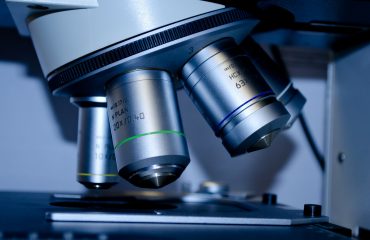My story discovering my heart disease….
My story discovering my heart disease is I think rather unusual, but could be life saving for others. I assumed that since I had no symptoms and no risk factors (known) that I didn’t have to worry about heart disease. How mistaken I was!
I am slim (always have been), low cholesterol (take medications), never smoked, no diabetes and active. I was 64 years old at the time. I went on Groupon and happened across an offer for an EBCT Coronary Calcium Scan very cheap. This test basically checks for calcium deposits in your heart a leading cause of heart attacks and death. I decided to buy it for myself and my husband. I was concerned about him. His test results were fine. My results were extremely high. The letter with my results told me to contact a cardiologist ASAP.
Since I was asymptomatic and no obvious risk factors my cardiologist didn’t seem very concerned. He did suggest that we test anyway. My nuclear stress test results said I had one minor blockage in one artery. Being cautious, my doctor decided to do a heart catheterization test. I was told I would either go home with medication or stay overnight if they put a stint in.
Results were that I had four blockages, 70,80,90 and 95%. The 95% blockage was in the LAD or “widow maker” so named because of the low survival rate if a patient experiences a heart attack there. I ended up having Quadruple Bypass Heart Surgery instead of going to Europe which was planned for the following week. My doctor told me that going on an airplane with my condition could be life threatening.
Just knowing the symptoms are not enough. If I hadn’t had the EBCT Coronary Calcium Scan, I doubt I would have met my new grandson.
The stress test, which is a very common test used by cardiologists, gave very inaccurate results and again, I had no reason to think I would need one, nor did I know to ask for a heart catheterization test. If my doctor had not been thorough, I most probably would have had a massive heart attack.
I am hoping that my experience can help save lives.
— Carol Rosenhaft
My doctor wrote the following:
Your piece is very accurate. I might mention that women often do not have the classic symptoms of men, or no symptoms we recognize. I think it is a great story to share. You might also mention how, in some states, insurance coverage is mandated (i.e. Texas has the heart attack prevention bill, while Georgia lacks behind for this cheap test. It has less radiation than some mammograms).
Marianne J. Legato, MD, Ph. D. (hon. c.), FACP is an internationally renowned academic, physician, author, lecturer, and pioneer in the field of gender-specific medicine. She is a Professor Emerita of Clinical Medicine at Columbia University College of Physicians & Surgeons and an Adjunct Professor of Medicine at Johns Hopkins Medical School. Dr. Legato is also the Director of the Foundation for Gender-Specific Medicine, which she founded in 2006 as a continuation of her work with The Partnership for Gender-Specific Medicine at Columbia University. She received an honorary PhD from the University of Panama in 2015 for her work on the differences between men and women.
At its core, gender-specific medicine is the science of how normal human biology differs between men and women and how the diagnosis and treatment of disease differs as a function of gender. Dr. Legato’s discoveries and those of her colleagues have led to a personalization of medicine that assists doctors worldwide in understanding the difference in normal function of men and women and in their sex-specific experiences of the same diseases.
She began her work in gender-specific medicine by authoring the first book on women and heart disease, The Female Heart: The Truth About Women and Coronary Artery Disease, which won the Blakeslee Award of the American Heart Association in 1992. Because of this research, the cardiovascular community began to include women in clinical trials affirming the fact that the risk factors, symptoms, and treatment of the same disease can be significantly different between the sexes. Convinced that the sex-specific differences in coronary artery disease were not unique, Dr. Legato began a wide-ranging survey of all medical specialties and in 2004, published the first textbook on gender-specific medicine, The Principles of Gender-Specific Medicine. The second edition appeared in 2010 and the third edition, dedicated to explaining how gender impacts biomedical investigation in the genomic era, won the PROSE Award in Clinical Medicine from the Association of American Publishers in 2018. A fourth edition is forthcoming.
She also founded the first scientific journals publishing new studies in the field, The Journal of Gender-Specific Medicine, and a newer version, Gender Medicine, both listed in the Index Medicus of the National Library of Medicine. She has founded a third peer-reviewed, open access journal, Gender and the Genome, which focuses on the impact of biological sex on technology and its effects on human life.
Dr. Legato is the author of multiple works, including: What Women Need to Know (Simon & Schuster, 1997), Eve’s Rib (Harmony Books, 2002), Why Men Never Remember and Women Never Forget (Rodale, 2005), Why Men Die First (Palgrave, 2008), The International Society for Gender Medicine: History and Highlights (Academic Press, 2017), and most recently, The Plasticity of Sex (Academic Press, 2020). Her books have been translated into 28 languages to date.
As an internationally respected authority on gender medicine, Dr. Legato has chaired symposia and made keynote addresses to world congresses in gender-specific medicine in Berlin, Israel, Italy, Japan, Panama, South Korea, Stockholm, and Vienna. In collaboration with the Menarini Foundation, she is co-chairing a symposium on epigenetics, Sex, Gender and Epigenetics: From Molecule to Bedside, to be held in Spring 2021 in Italy. She maintains one of the only gender-specific private practice in New York City, and she has earned recognition as one of the “Top Doctors in New York.”





